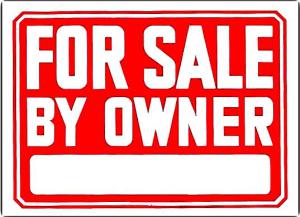
This happens to every founder at some point. You realize building your business is harder than you expected. You have been working for a few years without finding breakaway growth. The team is tired and losing some of their passion, overwhelmed by the work that needs to be done. You need to start a new round of fundraising soon. However, you are not sure that you want to invest another three to four years into building this company. All of a sudden, you find yourself thinking about selling.
Selling your company always seems like an attractive option. Instead of working harder you can get out now for a few millions dollars, pay back your investors, and pocket a little extra for the few years of hard work. You read about it happening everyday in Techcrunch, so why not you? You have a great team and an awesome product; some large company would surely pay for that.
Unfortunately, that is not how it works. Companies are bought, not sold, as everyone will tell you. Selling your company, when things are not going well requires a number of forces, to converge in your favor at the same time:
- An acquirer must have the need for your team, product or customers at a price you will accept.
- Your team must be willing to work for the larger company for a few years.
- Your investors must be willing to sell for a price that might be a loss for them.
It is surprisingly rare that these three factors converge at the same time. When acquirers come knocking, you and your team might be fresh off a round of financing and flush with your dream of riches. When you and your team decide to sell, there may be no acquirers ready to move. Even if your team and an acquirer are on board your investors might not be willing to give up.
That being said, selling while under distress can be done. It takes a lot of work on your part, as a founder, as you need to do a number of things at once:
- Focus on maximizing the value (and hence attractiveness) of your business by emphasizing the things that acquirers will value. That includes your customers, product, team, etc.
- Spend a lot of time networking to find any potentially interested acquirers. You need two or more to get a decent deal in negotiations and these will usually come from existing partners who know your business well.
- Convince your team to continue to work hard during the search for an acquirer, despite all the uncertainty and unknowns. This can be the hardest part, especially if they are already feeling burned out.
It is a hard balance and few companies successfully navigate it. I have seen teams fall apart right before a deal is closed because of fear and uncertainty. I have seen great teams with great products look high and low never to find any interested acquirers. Even if you find an acquirer, most distressed companies are treated as “acqui-hires” which means the team gets a token bonus, in addition to a job offer.
The only real chance you have for being rewarded for all your hard work is to build a business that grows. If that looks impossible, maximize the strategic value you can provide through your product, team and customers while pursuing relationships with potential acquirers. In other words, the normal things you do as a founder.
So, time to get back to it.
This article was originally published on Sean on Startups, a blog about starting and growing companies.
Image Credit: CC by Prokopenya Viktor



